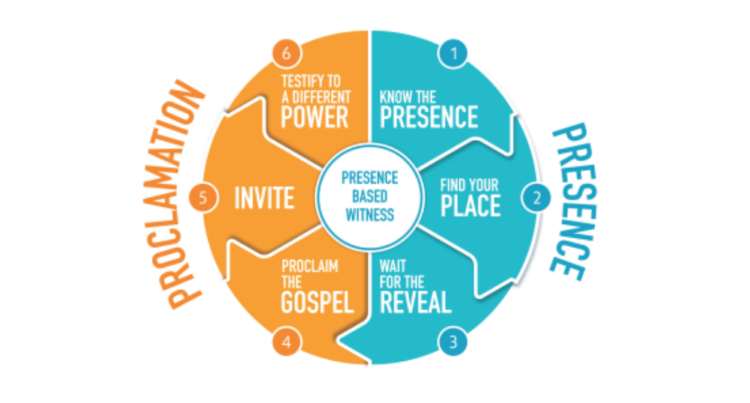The Problem(s) with Evangelism
I’ve previously mentioned the need to reimagine evangelism because of our proclamation’s power dynamics, abuses, and content distortion. Evangelism frequently connotes heavy-handed scare tactics and an outdated message for many people in post-Christian cultures. Is it necessary? Recent research suggests that many are questioning whether evangelism is even reasonable or necessary.1See https://www.barna.com/research/millennials-oppose-evangelism/ for data supporting this perspective. I am sympathetic to these concerns. Strongly so. I have sat with many neighbors and asked them about faith, specifically Christianity. Many of those who do not claim to follow Jesus have had a negative experience with some form of what they know to be “evangelism.” I’ve seen the wreckage of the good news gone bad through power distortions.
Nevertheless, I am not among those who think we should do away with sharing our faith. Instead, I would like to consider why and how the good news (Greek transliteration, “Evangelion“) has gone so very bad, and seek ways to reclaim the embodied witness of the Kingdom for the good of my neighbors. Perhaps I am overly optimistic, but I have seen evidence that this is possible.
I prefer to reimagine evangelism as something better described as a presence-based witness.
Previous methods of evangelism have relied on techniques that place the evangelist in a posture of presumption over another person. It looks and sounds something like this:
- Presuming the person knows the same language that we do.
- Presuming that person is concerned with the same existential issues that we are.
- Presuming the person believes (or should believe) in the same authority of the Bible that we do.
- Presuming the person has the same access to resources that we do.
This list could go on!
Evangelism frequently connotes heavy-handed scare tactics and an outdated message for many people in post-Christian cultures. Is it necessary? Share on X
This presumptive path puts the evangelist in a posture of power over the other person. And it is at the very site of this power dynamic I contend we have already distorted the good news by our posture over others rather than alongside them. What might it look like to come alongside others, honoring them by learning from them and God together? How might that change how the good news is received?
But first, we have to reckon with this power dynamic.
Instead of the evangelist in power over others, we could offer a path where the evangelist is in a posture under the power of God at work in Christ in persons and a place. In presence-based witnessing, we come alongside the persons and situations God has put in our pathway. We seek to recognize God’s presence and power at work, come under Him, and point to how He is already at work in the one who does not yet know Him. Relying on the Spirit of God to go before us opens up an altogether different approach to sharing our faith. It is an entirely upside down approach compared to the ‘power over methods’ we have inherited.
All worldly power, manipulation, and coercion are swept away in making space for Jesus. In this way, we become witnesses to Jesus, and cooperate with the work of His Holy Spirit to bring all people to Himself. We are never the judge or jury, bringing authoritative judgments upon people. That is the work of the Holy Spirit alone. We are merely witnesses, pointing to the reality of Jesus and helping people see Him. This model of witness is seen in Luke 10.
In our recently-released book, Presence Based Witness, David Fitch and I offer six steps to follow in this path (See image below).

We hope and pray that this simple way of witnessing will become a daily practice in your life, wherever God places you for His Kingdom. In so doing, you may find Jesus bringing about healing in your perspective on evangelism as you participate in the faithful witness of a community of people of God.
///
Instead of the evangelist in power over others, we could offer a path where the evangelist is in a posture under the power of God at work in Christ in persons and a place. (1/2) Share on X
In presence-based witnessing, we come alongside the persons and situations God has put in our pathway. We recognize God’s presence and power and point to how He is already at work in the one who does not yet know Him. (2/2) Share on X




